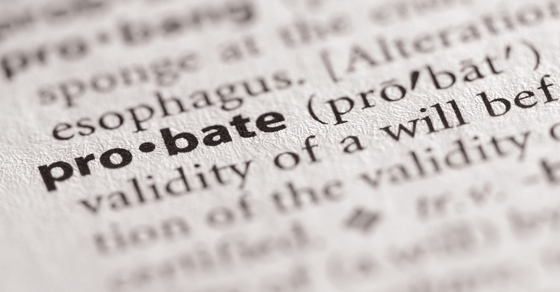Although probate can be time consuming and expensive, one of its biggest downsides is that it’s public — anyone who’s interested can find out what assets you owned and how they’re being distributed after your death. The public nature of probate may also draw unwanted attention from disgruntled family members who may challenge the disposition of your assets, as well as from other unscrupulous parties.
The good news is that by implementing the right estate planning strategies, you can keep much or even all of your estate out of probate.
Probate, Defined
"Probate" means "Succession" in Louisiana. The terms can be used interchangeably. Probate is a legal procedure in which a court establishes the validity of your will, determines the value of your estate, resolves creditors’ claims, provides for the payment of taxes and other debts, and transfers assets to your heirs.
Is probate ever desirable? Sometimes. Under certain circumstances, you might feel more comfortable having a court resolve issues involving your heirs and creditors. Another possible advantage is that probate places strict time limits on creditor claims and settles claims quickly.
Choose the Right Strategies
There are several tools you can use to avoid (or minimize) probate. (You may still need a will — and probate — to deal with tutorship of minor children and certain other matters.)
The simplest ways to avoid probate involve designating beneficiaries or titling assets in a manner that allows them to be transferred directly to your beneficiaries outside your will. So, for example, be sure that you have appropriate, valid beneficiary designations for assets such as life insurance policies, annuities and retirement plans.
For assets such as bank and brokerage accounts, look into the availability of “payable on death” (POD) or “transfer on death” (TOD) designations, which allow these assets to avoid probate and pass directly to your designated beneficiaries. However, keep in mind that while the POD or TOD designation is permitted in most states, not all financial institutions and firms make this option available. Also note that it is not possible to use a POD or TOD designation for an investment account in Louisiana.
For homes or other real estate — as well as bank and brokerage accounts and other assets — some people avoid probate by maintaining a "usufruct" of the account and designating a child or other person as the "naked owner." Maintaining a usufruct of an asset entitles the usufructuary the right to "use" the asset, as well as the "fruits", which would be earnings from the asset like rents, royalties, or dividends. But this has three significant drawbacks: 1) Once you retitle property, you can’t change your mind, 2) holding title in usufruct gives the naked owner some control over the asset and exposes it to his or her creditors, 3) there may be undesirable tax consequences; and 4) if nursing home asset protection is a goal, Louisiana Medicaid deems a "usufruct" as a "countable" asset, which can prevent Medicaid qualification.
The most common option to avoid the cost and administrative burden of probate is a revocable living trust. It's To learn more about revocable trusts, visit our website: https://theuslawoffices.com/revocable-living-trusts
Discuss Your Options
Because of probate’s public nature, avoiding the process to the extent possible is a goal of many estate plans. Implementing the proper strategies in your plan can protect your privacy and save your family time and money. Contact us with questions or to discuss your options.
Free Resources
For more useful information about how to protect your home, savings, and family, and free downloads, visit our Free Resources page.
Theus Law Offices specializes in a complete range of estate planning and elder law services, including wills, trusts, probate, successions, estate administration, and probate litigation. If you need a Louisiana wills and trusts lawyer or succession attorney in Alexandria, Lafayette, Lake Charles, Baton Rouge, New Orleans, Shreveport, Monroe, or elsewhere in Central Louisiana, let our certified estate planning specialist and probate lawyers help you.










